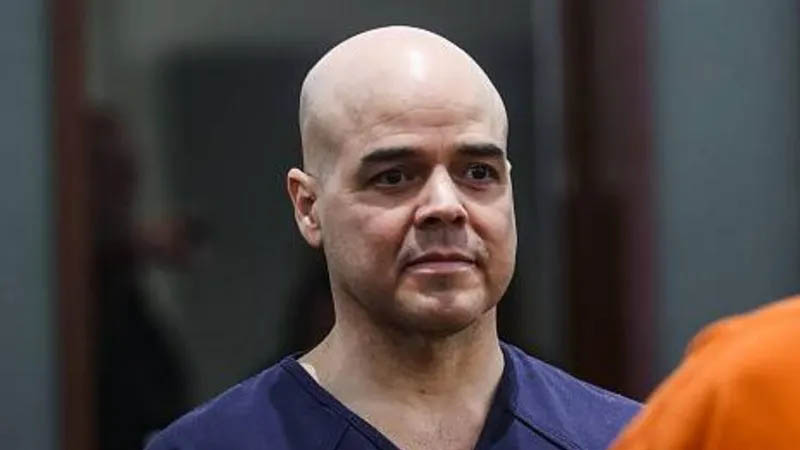The trial of former Nevada politician Robert Telles, accused of the brutal murder of Las Vegas Review-Journal investigative journalist Jeff German, is set to commence with opening statements on Wednesday, August 14, 2024, according to a report by CNN. Once the Clark County Public Administrator, Telles now faces charges of murder with the use of a deadly weapon, a stark contrast to his previous role as a public servant.
Telles, who has pleaded not guilty, is accused of fatally stabbing Jeff German outside the journalist’s home on September 2, 2022. The prosecution contends that the murder was premeditated and executed with chilling deliberation, describing it as a crime committed by “lying in wait.”
Before his arrest, Telles was a relatively obscure public official whose office gained unwanted attention due to German investigative reporting. The journalist had exposed allegations of a hostile work environment within the Clark County Public Administrator’s office, along with claims that Telles had engaged in an inappropriate relationship with a staff member. These revelations, published in the Las Vegas Review-Journal, reportedly enraged Telles, who publicly denied the allegations, accusing German of attempting to “drag [him] through the mud.”
Despite Telles’ denials, the damage to his political career was irreversible. In June 2022, he lost his bid for reelection in the Democratic primary, a defeat widely attributed to German reports. Just months later, Telles would be arrested for the murder of the journalist who had exposed his alleged misconduct.
Jeff German, a seasoned journalist at 69, was well-acquainted with the darker sides of life in Las Vegas. His career spanned decades, during which he covered organized crime, government corruption, and other elements of the city’s underbelly. His work earned him a reputation as one of the most respected investigative journalists in the region, but it also made him a target. German’s reporting on Telles was part of his ongoing commitment to holding those in power accountable, a mission that ultimately cost him his life.
In the week leading up to his death, German was reportedly working on another story about Telles, continuing his investigation even as tensions between the two escalated. “When we say journalism is a dangerous business, we are most often talking about international crisis and foreign correspondents,” remarked Jen Judson, president of the National Press Club, and Gil Klein, president of the National Press Club Journalism Institute, in a joint statement following German’s murder. “But right here in a major city in the United States, we see the depth to which dark forces may sink in order to stop publication of the truth.”
With no eyewitnesses to the crime, the prosecution’s case relies heavily on video surveillance, forensic evidence, and circumstantial details. Shortly after German’s body was discovered, Las Vegas Metro Police released surveillance footage showing a suspect dressed in a bright orange jacket, oversized sun hat, and gloves—an ensemble clearly intended to obscure the wearer’s identity. The footage also captured a vehicle matching the description of Telles’ car at the scene of the murder.
Investigators quickly focused on Telles, who had been vocal about his displeasure with German’s reporting. Their suspicions were further heightened when blood was found on Telles’ shoes, along with his DNA at the crime scene. According to Clark County Chief Deputy District Attorney Richard Scow, DNA evidence was discovered under German’s fingernails, a chilling indication that the veteran journalist fought for his life in his final moments. “The defendant’s DNA is alleged to have been recovered from the hands of the victim, presumably during the time in which he was fighting for his life,” noted Justice of the Peace Elana Lee Graham, who also highlighted the numerous defensive wounds on German’s hands and arms.
Further incriminating evidence emerged when police searched Telles’ home and found a hat that matched the one worn by the suspect, though it had been cut, seemingly in an attempt to destroy evidence. This, combined with the DNA and surveillance footage, forms the core of the prosecution’s case against Telles.
In a surprising move, Robert Telles has chosen to testify in his own defense. His attorney, Robert Draskovich, confirmed this strategy to CNN affiliate KTNV, setting the stage for what promises to be a dramatic and closely watched trial.


